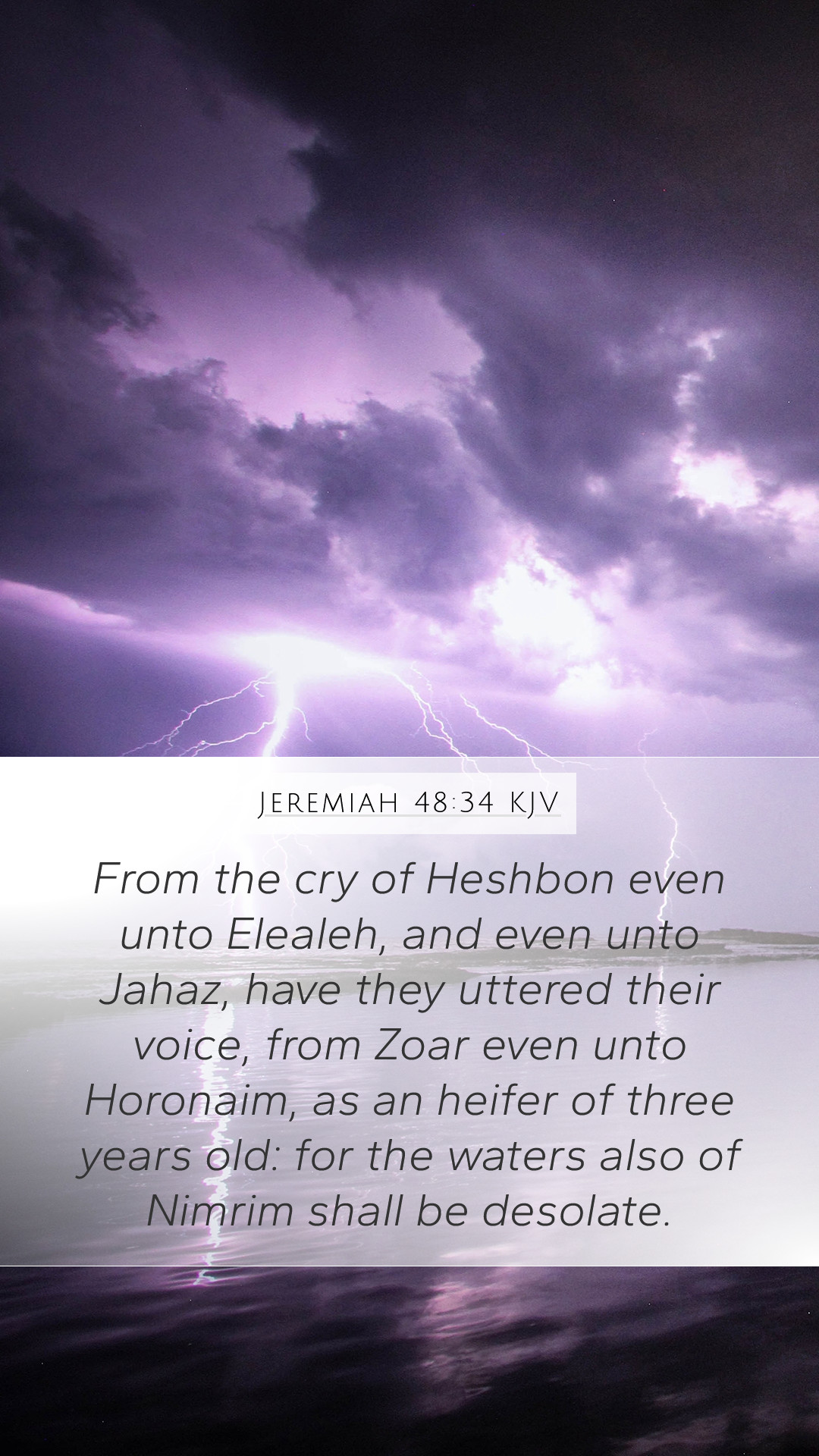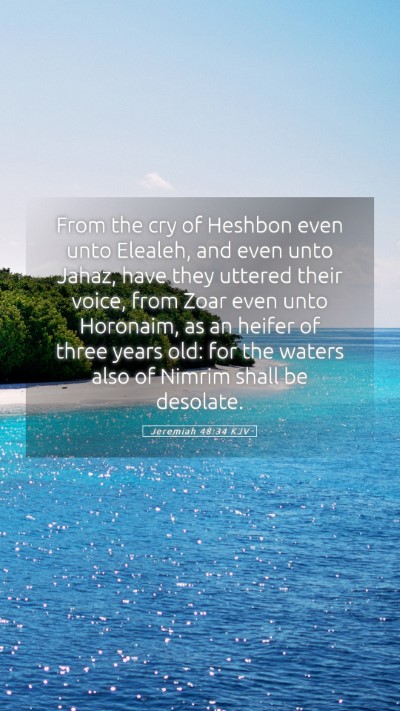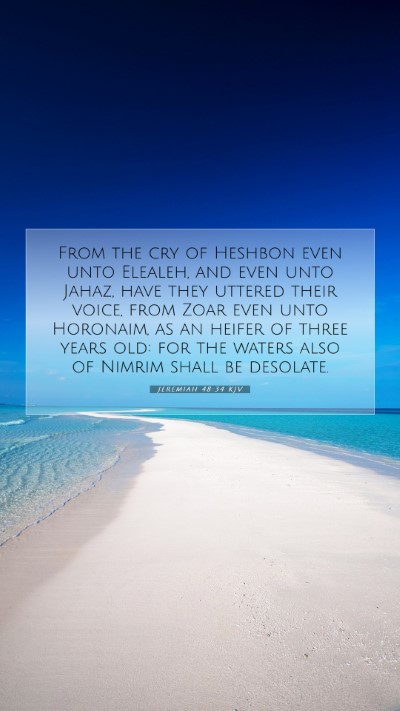Understanding Jeremiah 48:34
Jeremiah 48:34 states:
"From the cry of Heshbon even unto Elealeh, and even unto Jahaz, have they uttered their voice, from Zoar even unto Horonaim, as an heifer of three years old: for the waters also of Nimrim shall be desolate."
Bible Verse Meaning
The verse speaks to the desolation that will come upon Moab, depicted through the cries of its inhabitants and the wasteland that will symbolize their downfall. This is a prophecy delivered by Jeremiah, who details the sorrow and ruin that will engulf Moab due to its rebellion against God.
Insights from Public Domain Commentaries
- Matthew Henry's Commentary:
Matthew Henry elucidates that the verse illustrates the depth of mourning in Moab, indicating that even cities known for their strength (like Heshbon and Jahaz) are not spared from calamity. This reflects God’s judgment and serves as a reminder of the futility of relying on one's own strength without divine support.
- Albert Barnes' Notes:
Barnes highlights that the geographical references emphasize the comprehensive nature of the judgment. As the distress spreads from city to city, it showcases that nowhere in Moab will be safe from the consequences of sin. This serves as a severe warning of the impact of rebellion against God.
- Adam Clarke's Commentary:
Clarke points out the symbolic use of animals, particularly the 'heifer of three years old', which indicates a state of helplessness and impending doom. The mention of 'Nimrim' reflects the drying up of resources, emphasizing the totality of Moab's impending ruin.
Contextual Background
To fully understand Jeremiah 48:34, it is crucial to consider the historical context of Moab as a nation. Situated east of the Jordan River, Moab had a tumultuous relationship with Israel. Often, they opposed Israel, leading to judgments pronounced by prophets, including Jeremiah.
Thematic Elements in Jeremiah 48:34
- Judgment: The essence of the verse centers on divine judgment for nations that disregard God's commandments.
- Desolation: The imagery of desolation used in the verse serves as a metaphor for spiritual emptiness and the consequence of separation from God.
- Human Suffering: The collective cries of the people signal the severe emotional and spiritual suffering that accompanies divine retribution.
Bible Study Insights
This verse is often used in Bible study groups and online Bible study to provoke discussions around the themes of repentance and the consequences of sin. Understanding this passage can aid in developing a deeper grasp of Bible verse meanings and Bible verse interpretations, particularly when considering how historical contexts inform present-day applications of Scripture.
Application of Jeremiah 48:34
In applying this verse to daily life, believers are reminded of the importance of remaining steadfast in faith and maintaining a close relationship with God to avoid the pitfalls of desolation that arise from disobedience. This can inspire personal reflection and growth in the context of a Bible study lesson or Bible study guide.
Cross References
- Isaiah 15:1-9: Reflects on the judgment of Moab, similar to Jeremiah’s prophecy.
- Ezekiel 25:8-11: Discusses God’s judgment against Moab for their conduct towards Israel.
- Romans 11:22: Highlights the duality of God’s kindness and sternness, reminiscent of His judgment in Jeremiah.
Conclusion
Jeremiah 48:34 stands as a poignant reminder of the consequences of turning away from God. Through biblical exegesis and careful scripture analysis, readers can gain insights into the nature of God's justice and mercy, which are prevalent themes throughout the Bible. By studying this verse, one can better understand the harsh realities of divine judgment and the importance of repentance.
Further Study Resources
Those interested in exploring this topic further may consider utilizing Bible study tools, engaging with Bible study materials, or participating in Bible study courses that delve deeper into the meanings and significance of prophetic writings.


